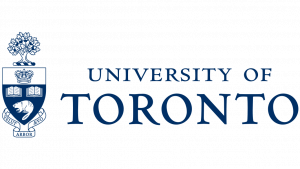Postdoctoral Fellowship, Centre for Ethics, University of Toronto
The interdisciplinary Centre for Ethics at the University of Toronto (C4E) invites applications for a postdoctoral fellowship during the 2020-21 academic year.
Area of Research: We welcome candidates from diverse disciplinary backgrounds including, but not limited to, philosophy, law, political science, the social sciences, the humanities, computer science, engineering, and technology studies, to conduct research that furthers C4E’s mission as an interdisciplinary centre aimed at advancing research and teaching in the field of ethics, broadly defined, by bringing together the theoretical and practical knowledge of diverse scholars, students, public servants and social leaders in order to increase understanding of the ethical dimensions of individual, social, and political life.
Please consult our website or online journal to get a sense of the variety of projects and activities at the Centre (including, e.g., Ethics of AI in Context, Ethics in the City, Ethics of Apology, Ethics of Pedagogy, Perspectives on Ethics). Recent C4E events have drawn speakers and participants from a wide range of disciplines, including anthropology, classics, comparative literature, computer science, criminology, economics, education, engineering, English, history, film studies, information studies, Jewish studies, law, management, medicine, media studies, music, philosophy, political science, public policy, religion, and sociology.
Description of duties: Under the direction of the Director, Centre for Ethics, the successful candidate will conduct research, will help to develop an interdisciplinary ethics community across campus, and will help to foster public discourse on issues of ethical import by facilitating and participating in C4E events, activities, and projects. The successful candidate will also be expected to teach 0.5 full-course equivalents (FCE) offered by the Centre for Ethics in each of the fall and winter terms. Teaching will be covered by the terms of the CUPE 3902 Unit 1 Collective Agreement.
Salary: $51,000 per year
Please note that should the minimum rates stipulated in the collective agreement fall below the rates stated in this posting, the minimum rates stated in the collective agreement shall prevail.
Required qualifications: Applicants must have completed all requirements for their doctorate by July 31, 2020. Candidates must also be no more than 5 years from the awarding of their degree, and cannot have accepted or hold a tenure-track position.
Application instructions: All individuals interested in this position must submit a cover letter of application, a current CV, and a sample of written work to ethics@utoronto.ca by the closing date. Please submit your application materials in PDF format as one file, using the naming convention “LastnameFirstname_2020.” Applicants also should arrange to have three confidential letters of reference sent directly to the same email address; at least one of the reference letters should speak to the applicant’s teaching experience and ability.
The University of Toronto is strongly committed to diversity within its community and especially welcomes applications from racialized persons / persons of colour, women, Indigenous / Aboriginal People of North America, persons with disabilities, LGBTQ persons, and others who may contribute to the further diversification of ideas.
Closing date: Complete applications received by February 1, 2020 will be given priority; however, the position will remain open until filled. Any additional inquiries may be addressed to the Centre Administrator at ethics@utoronto.ca.
Supervisor: Professor Markus Dubber, Director, Centre for Ethics
Expected start date: August 1, 2020
Term: August 1, 2020 to July 31, 2021
FTE: 100%
